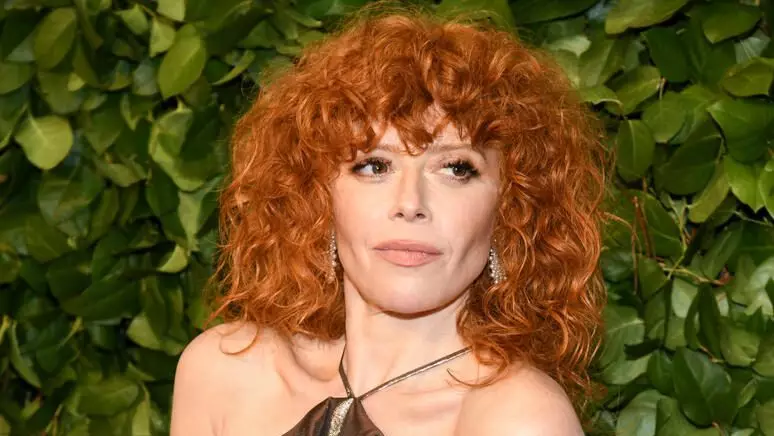In a striking departure from the mainstream narrative surrounding artificial intelligence, Natasha Lyonne is set to make waves with her upcoming directorial debut, *Uncanny Valley*. As the entertainment industry grapples with the complexities of AI, Lyonne’s approach offers a refreshing and conscientious perspective on its integration into filmmaking. With the second season of her show *Poker Face* premiering soon, she is eager to articulate how an ethical framework can enhance creativity rather than stifle it.
Lyonne articulates a commitment to using “clean” AI models in her work, emphasizing their role as tools rather than replacements for human talent. She notes, “This is a tool. That’s not going to omit any department heads or production designers.” This reflects a nuanced understanding of technology’s place in the creative process. Rather than viewing AI with skepticism, Lyonne embraces its potential to augment storytelling, much like the introduction of green screens transformed visual storytelling in cinema.
A Call for Regulation in the AI Sphere
Lyonne’s insights come amid a swell of concern surrounding the implications of AI on intellectual property and creative ownership. Recently, she joined a coalition of over 400 industry figures, including luminaries such as Ava DuVernay and Paul McCartney, to advocate for stronger copyright protections in the age of AI. “Everybody should be heavily alarmed,” she asserts, capturing a palpable urgency that reverberates throughout the creative community.
Her passionate appeal signals a pivotal moment in the dialogue around AI and its impact on personal artistic expression. By contrasting the clean model she plans to use with the “dirty model” prevalent in many AI technologies, Lyonne challenges her peers to scrutinize the tools at their disposal. Her call to action for practitioners to differentiate between responsible and irresponsible AI use is a critical step toward fostering a sustainable creative ecosystem.
Navigating the Complex Landscape of AI
Lyonne’s analysis extends beyond mere technological boundaries; she dives deep into the societal implications of AI. The growing phenomenon of data theft and unfair practices associated with tools like OpenAI and ChatGPT poses significant ethical dilemmas that cannot be ignored. She remarks, “We need to distinguish the details here,” hinting at the dangers of a blind adherence to technological advances without evaluating their repercussions.
Moreover, Lyonne evokes a poignant understanding of the real stakes involved. With speculations about the evolution of artificial general intelligence (AGI) on the horizon, her commentary urges a more informed and thoughtful approach to AI in the creative sector. “There’s a lot of talk about the next five years,” she warns, underscoring a need for vigilance in a rapidly evolving landscape.
A Vision of Collaborative Filmmaking
By integrating AI into her filmmaking process, Lyonne is not simply adopting trends — she is advocating for a collaborative synergy between human creativity and artificial intelligence. This vision not only enhances scale but also retains the essence of what makes filmmaking a profoundly human endeavor. Lyonne’s perspective repositions AI as a supportive ally rather than an adversarial force, invigorating the industry with boundless possibilities while ensuring that the artists remain central to the creative process.
As she embarks on this exciting chapter with *Uncanny Valley*, Natasha Lyonne embodies a balanced approach that champions innovation while safeguarding artistic integrity. Her journey serves as a compelling template for the future of filmmaking in an increasingly complex technological landscape, where creativity and ethics must walk hand in hand.
